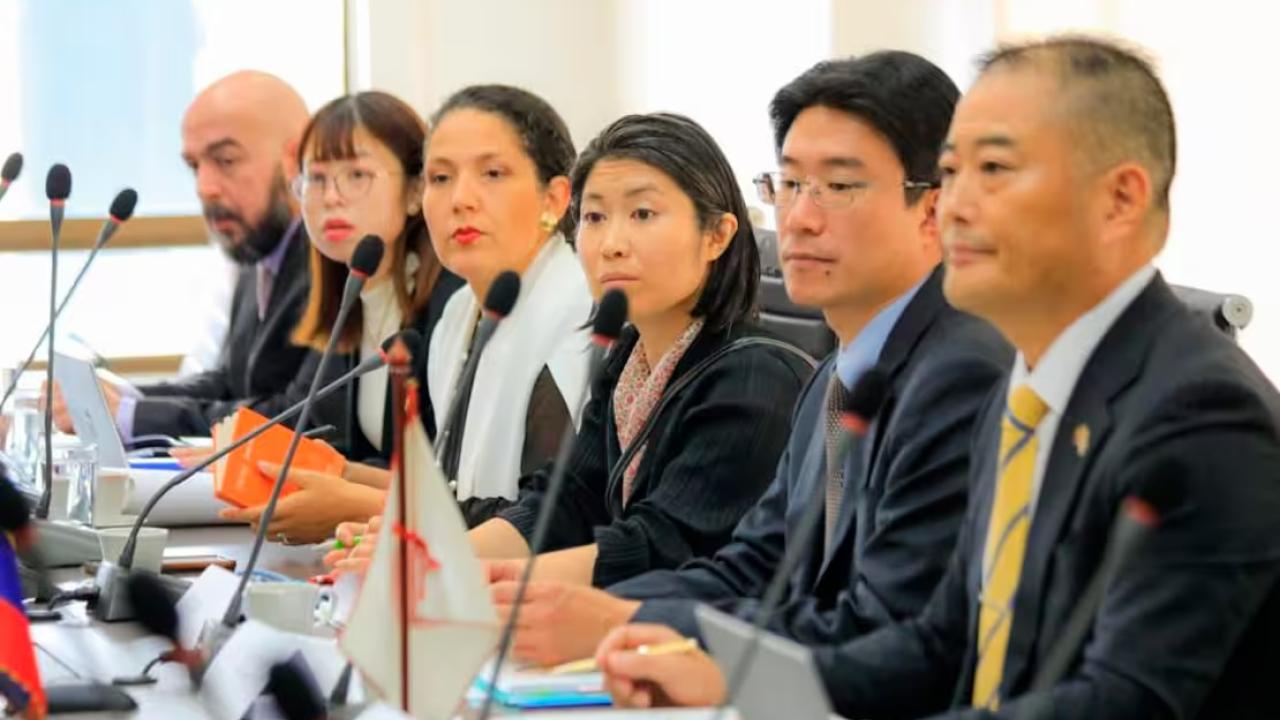
Ministers from both countries agree to improve cooperation in clean energy and bioeconomy, seeking to integrate MSMEs into global value chains.
The governments of Colombia and Japan have signed a memorandum of cooperation following the first Joint Committee meeting, with the aim of strengthening their trade relations in strategic areas such as energy transition, the use of clean energy, the bioeconomy and the improvement of industrial capacities.
This collaboration seeks to facilitate the transfer of knowledge and technology, especially in the development of electric vehicles.
The meeting was chaired by the Minister of Commerce, Industry and Tourism of Colombia, Luis Carlos Reyes, accompanied by the Vice Ministers of Business Development and Foreign Trade, Lorenzo Castillo and Luis Felipe Quintero Suárez, respectively. Representing Japan was Gaku Yoda, Deputy Director General of Commerce of the Ministry of Economy, Commerce and Industry.
The memorandum of cooperation seeks to generate products and services with greater added value, which will allow MSMEs to be integrated into national and international value chains related to climate, clean energy and industrial development. The Commerce Department has identified specific areas to strengthen cooperation with Japan, aligned with the country's Reindustrialization Policy.
TRADE WILL BE STRENGTHENED
During the first half of 2024, Colombia exported goods worth US$ 291 million to Japan, highlighting a trend towards non-mining and energy products. In this same period, the country received 3,187 Japanese travelers.
The officials agreed to intensify the exchange of information and collaborate on initiatives aimed at improving the business environment in Colombia. This includes promoting commercial diversification and sustainable investment in productive sectors that favor the technological transformation of the country.
Deputy Minister Castillo stressed the importance of establishing the foundations for sustainable and inclusive economic growth, working with micro, small and medium-sized enterprises (MSMEs) to diversify the productive matrix, with an emphasis on agroindustry, energy transition and manufacturing.
THE ENERGY TRANSITION WILL HAVE RELEVANCE
One of the central axes of cooperation is the fair energy transition. Through the transfer of Japanese technology, the aim is to develop and produce in Colombia the equipment and components necessary for electromobility. This process includes training for the installation and maintenance of electric vehicles, initially focused on public mobility.
In addition, it is planned to enhance local capacities in the assembly and repair of technologies for non-conventional renewable energy sources, as well as the manufacturing of components to improve energy efficiency in the industrial sector.
The industrial use of green hydrogen will be considered in applications such as boilers, representing a sustainable alternative in the energy sector.
INDUSTRIAL RECONVERSION WITH THE CIRCULAR ECONOMY
In the field of the circular economy, initiatives will focus on the co-processing of industrial waste and the treatment of wastewater. This seeks to promote industrial reconversion, especially in companies that produce single-use plastics.
Colombia's natural wealth becomes an asset for the development of the bioeconomy. The focus will be on research and knowledge transfer to create value chains for products with sustainable potential, taking advantage of local inputs.









